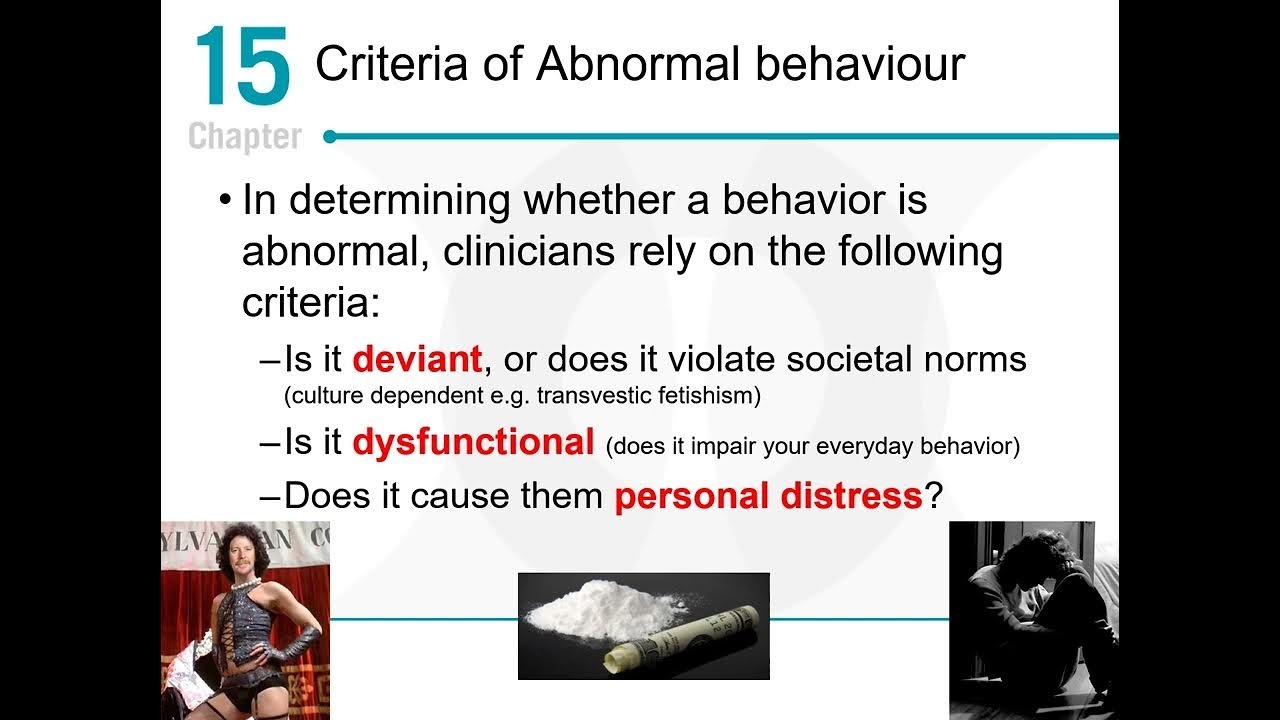MENTAL HEALTH
Summary
TLDRThis lecture explores the concepts of mental health and mental illness, emphasizing the continuum between well-being and distress. It explains how a healthy individual functions physically, socially, and productively, while mental illness impairs these abilities. The speaker details coping strategies for anxiety through defense mechanisms—categorized as immature, intermediate, and mature—alongside severe conditions like neurosis and psychosis. Stress responses, including physiological and psychological effects, are examined through the General Adaptation Syndrome model. The lecture also addresses grief, highlighting adaptive versus maladaptive reactions. Overall, the video provides a comprehensive guide to understanding mental health, coping strategies, and the impacts of stress and grief on human functioning.
Takeaways
- 😀 Mental health is defined as the ability to function physically, socially, and productively without impairment.
- 😀 Mental illness involves problems with functioning, affecting social, mental, or productive capacities.
- 😀 Mental health exists on a continuum, ranging from optimal well-being to severe mental illness.
- 😀 Anxiety can be managed temporarily through various defense mechanisms categorized as immature, intermediate, and mature.
- 😀 Immature defense mechanisms include rationalization, regression, isolation, and projection.
- 😀 Intermediate defense mechanisms include compensation, displacement, and reaction formation.
- 😀 Mature defense mechanisms include intellectualization, sublimation, suppression, identification, and introjection.
- 😀 Severe anxiety may lead to neurosis (distress with awareness) or psychosis (detachment from reality and minimal emotion).
- 😀 Stress triggers a physiological response known as General Adaptation Syndrome: alarm, resistance, and exhaustion stages.
- 😀 Prolonged stress can cause physical health problems such as cardiovascular issues, digestive disorders, skin problems, and weakened immunity.
- 😀 Grief reactions can be adaptive (normal processing of loss) or maladaptive (prolonged, impairing daily functioning).
- 😀 Recognizing and managing stress, anxiety, and grief requires awareness, coping strategies, and sometimes professional intervention.
Q & A
What is the difference between mental health and mental illness?
-Mental health is the ability to function normally, socially and physically, to be productive and useful, whereas mental illness involves problems with functioning, such as being unable to work, interact socially, or manage daily life effectively.
How is mental health viewed as a continuum?
-Mental health exists on a continuum from well-being, moderate distress, temporary functional disorders, to severe mental illness. A person's mental state can shift along this spectrum depending on stressors and support systems.
What are immature defense mechanisms and how do they manifest?
-Immature defense mechanisms are strategies used to temporarily cope with anxiety but are often maladaptive. Examples include rationalization (making excuses), regression (acting childlike), isolation (avoiding interaction), and projection (blaming others).
What are intermediate defense mechanisms?
-Intermediate defense mechanisms help manage anxiety more adaptively but are not fully mature. Examples include compensation (covering weaknesses), displacement (redirecting emotions), and reaction formation (expressing the opposite feeling).
Can you explain mature or healthy defense mechanisms?
-Mature defense mechanisms effectively manage anxiety in a constructive way. Examples include intellectualization (rationally explaining events), sublimation (channeling energy into productive activities), suppression (consciously controlling emotions), identification, and introjection.
How do neurosis and psychosis differ?
-Neurosis involves severe anxiety where the individual is aware of their distress and maintains contact with reality, while psychosis involves a loss of reality, minimal emotional awareness, and impaired control over behavior.
What is the general adaptation syndrome (GAS) in response to stress?
-GAS describes the body’s stress response in three stages: alarm (initial recognition of stress and physiological activation), resistance (coping and adaptation, including cortisol regulation), and exhaustion (mental and physical fatigue, possible long-term disorders).
What are some physical and psychological symptoms of stress?
-Physical symptoms include dry mouth, rapid breathing, heart rate changes, muscle tension, and slowed metabolism. Psychological symptoms include sleep and eating disturbances, anxiety, restlessness, nail-biting, and pacing.
How can prolonged stress affect overall health?
-Long-term stress can lead to physical illnesses such as colds, asthma, digestive problems, skin disorders, and even heart issues, as well as psychological problems like chronic anxiety or depression.
What is the difference between adaptive and maladaptive grief?
-Adaptive grief allows a person to process loss and eventually adjust to life changes. Maladaptive grief is prolonged, prevents normal functioning, and may involve persistent anger, denial, or depression.
How can environmental factors influence mental health?
-Environmental stressors and support from family or social networks can shift a person's position on the mental health continuum, either supporting recovery or exacerbating distress.
What role does awareness play in managing anxiety and mental distress?
-Awareness helps individuals recognize their distress, understand maladaptive behaviors, and take steps to cope effectively. In neurosis, awareness is present, whereas in psychosis, it is often absent.
Outlines

This section is available to paid users only. Please upgrade to access this part.
Upgrade NowMindmap

This section is available to paid users only. Please upgrade to access this part.
Upgrade NowKeywords

This section is available to paid users only. Please upgrade to access this part.
Upgrade NowHighlights

This section is available to paid users only. Please upgrade to access this part.
Upgrade NowTranscripts

This section is available to paid users only. Please upgrade to access this part.
Upgrade NowBrowse More Related Video

Mental health vs mental Illness - understanding the difference

Is Mental Illness Real? | Richard Bentall, Ann John, Lucy Johnstone

Mental Health and Well-Being in Middle & Late Adolescence - Personal Development for Senior High

What is Mental Health?

Chapter 14 lecture 1 recording

World Mental Health Day #WMHD
5.0 / 5 (0 votes)